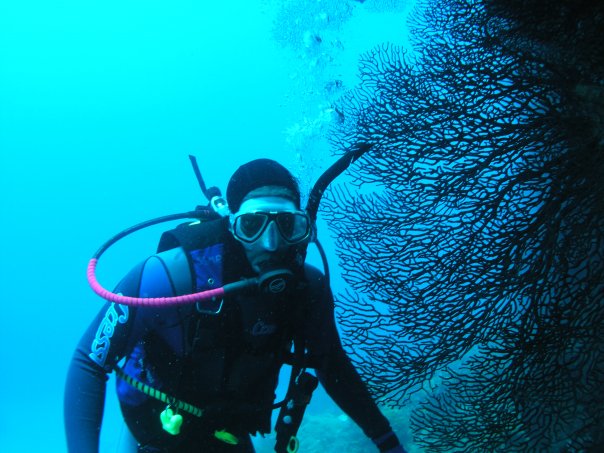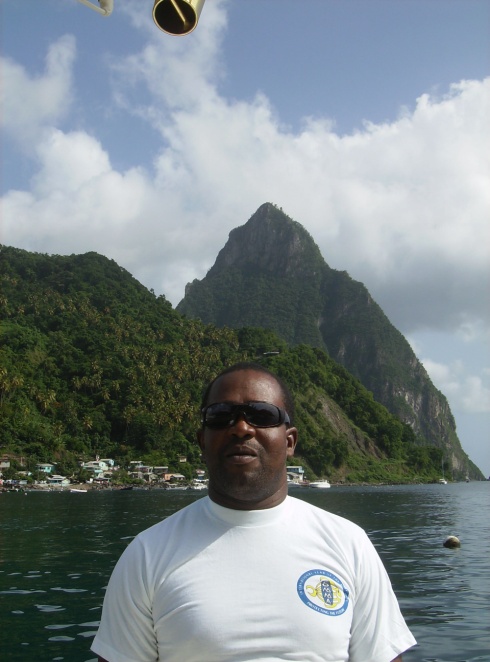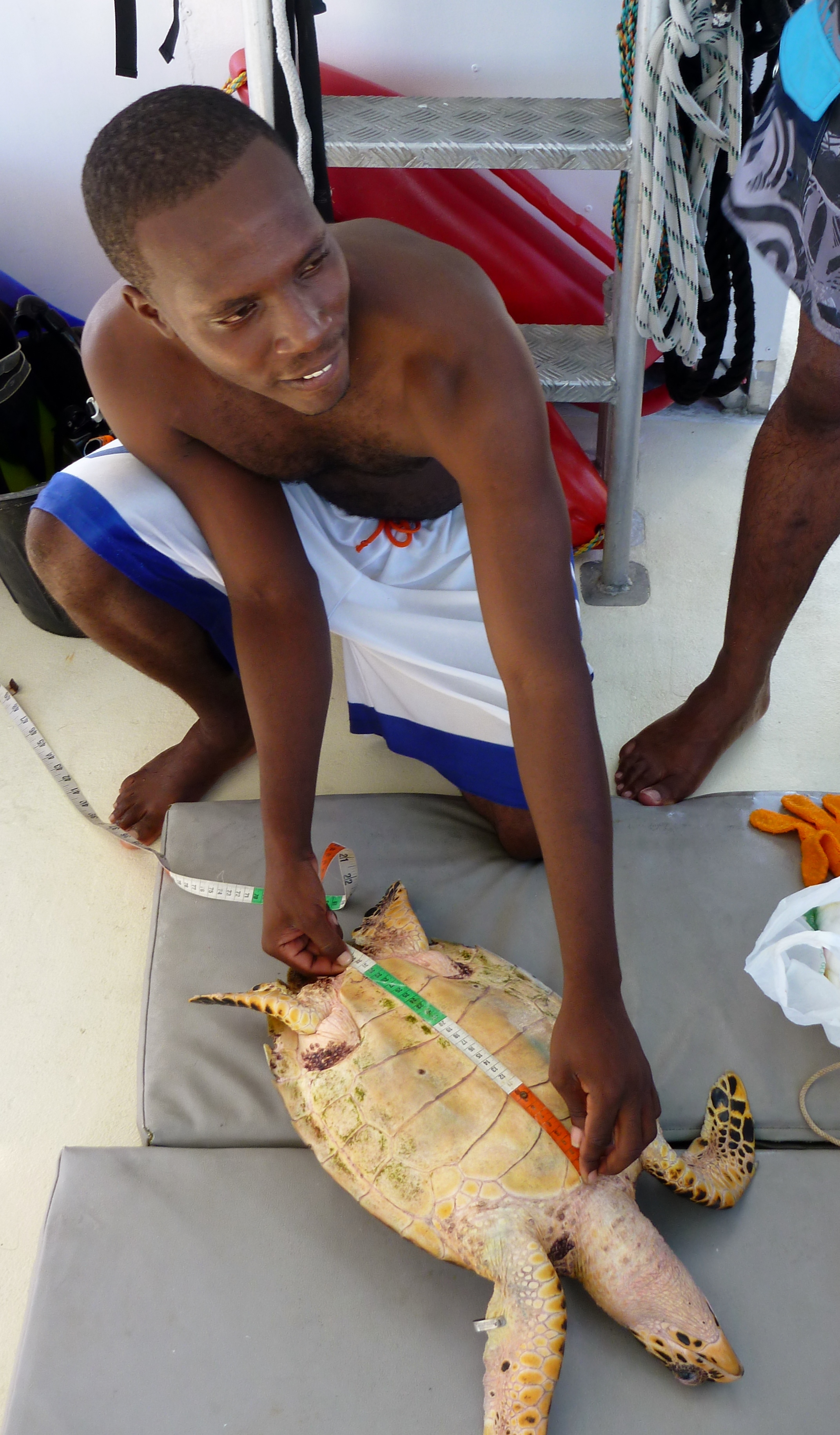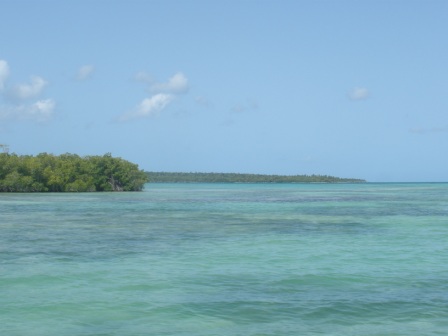Sustainable Cities, Biodiversity and Sustainable Land Management
On-going Case Studies under ReefFix
Publications
ReefFix: An Integrated Coastal Zone Management (ICZM) Ecosystem Services Valuation and Capacity Building Project for the Caribbean
Caribbean Marine Protected Areas (MPA)Enforcement Workshop
Grenada, April 22-26, 2013
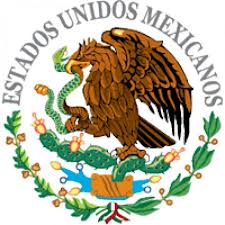
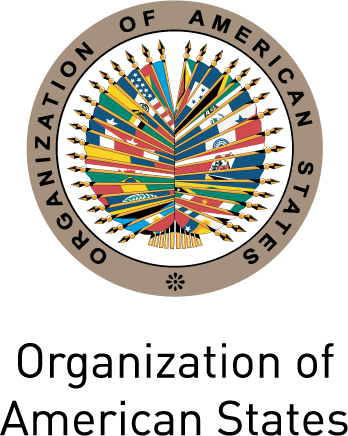
The Caribbean contains the greatest concentration of marine species in the Atlantic Ocean and is a hot-spot of marine biodiversity. The coastal Caribbean region is characterized by coral reefs, mangroves and seagrasses, plus other associated environments such as sandy beaches and rocky shores. These tropical ecosystems incorporate a high diversity of associated flora and fauna, and the nations that border the Caribbean collectively encompass a major global marine biodiversity hot spot. The Caribbean Sea contains the greatest concentration of rare and endemic marine species in the Western Hemisphere. The rich biodiversity of this region is threatened, however, by development and overuse.
Throughout the Caribbean, marine ecosystems are under constant threat from rapid development, land-based pollution and sedimentation, overuse, overfishing, climate change related coral bleaching and disease. Anticipated effects of climate change include changes in sea level, sea surface temperature, precipitation and ocean currents, with wide ranging social and economic impacts that directly affect MPA and coral reef associated livelihoods. Degradation of marine and coastal ecosystems will ultimately lead to their inability to adequately support local livelihoods and future development.
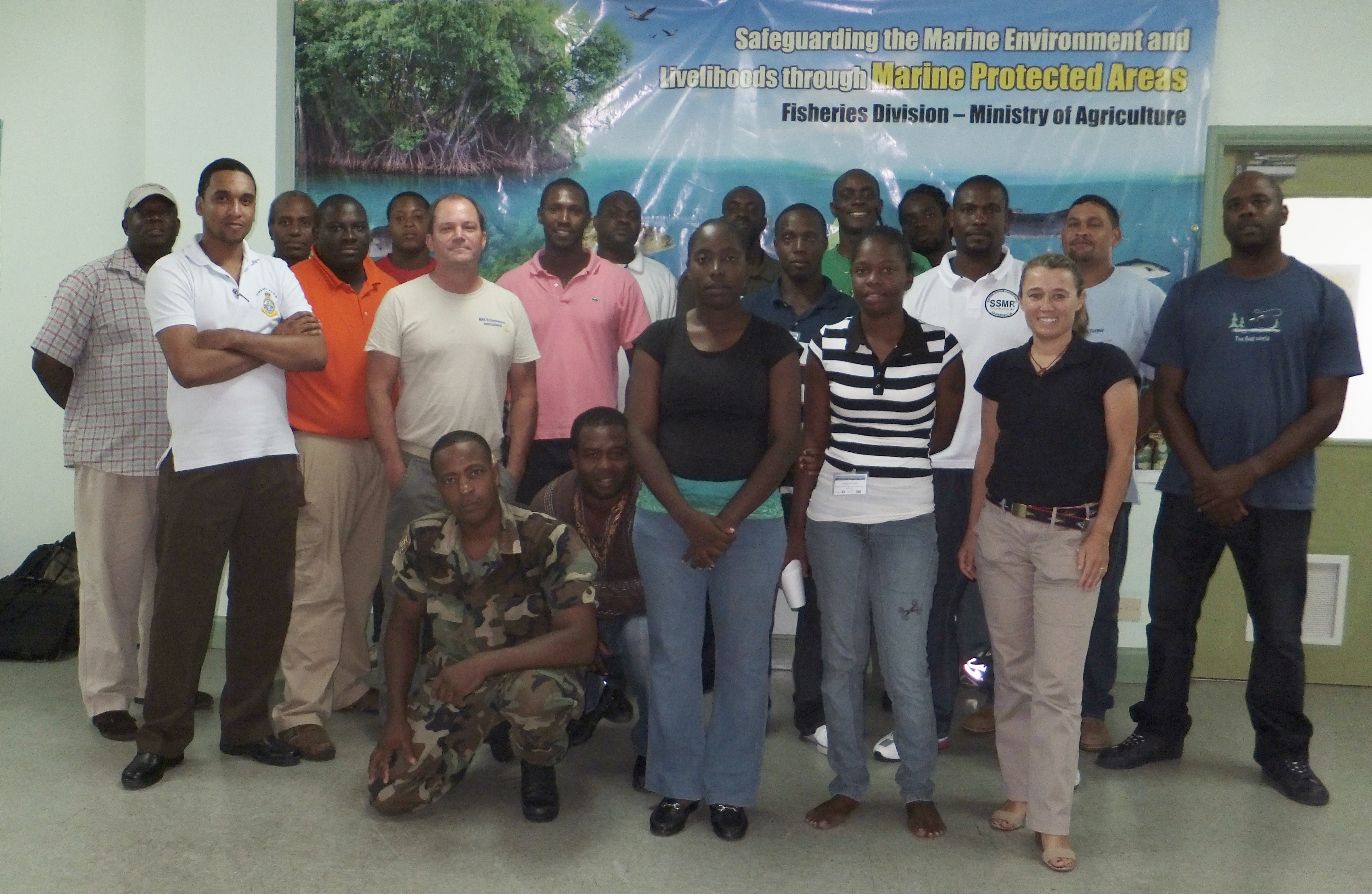
MPA Enforcement Workshop Description: The objective of the MPA enforcement training will be to increase the capacity for, and effectiveness of MPA enforcement. It will train head rangers in best practices for MPA enforcement, giving them hands-on training in practical enforcement skills and equipping them to better protect their MPAs’ coral reef ecosystems. A reduction in infractions and threats through improved enforcement will help ensure the reefs’ health and resilience, which is the long term conservation outcome.
An assessment and evaluation will be carried out to identify and prioritize enforcement needs, goals and objectives through consultation with MPA officials, enforcement officers, judicial system and legal experts and other key stakeholders. The goal of this assessment is to obtain the information necessary to evaluate existing capacity and gaps in enforcement and related education efforts to properly protect the MPA’s in and around Grenada. Social-economic, educational and public outreach will be integrated into this assessment, and will identify and prioritize enforcement goals and needs. Outputs of this assessment will be used to guide the design and delivery of training
Workshop Content: The training will be facilitated by MPA Enforcement International, with the involvement of local experts drawn from Grenada’s Coast Guard and the Chief Prosecutor. The workshop will be attended by 15 participants including regional participants, participants from 3 Grenada MPAs (Molinere/Beausejour MPA-MBMPA, Sandy Island/Oyster Bed MPA-SIOBMPA, Woburn/Clarke's Court Bay-WCCBMPA) and other key resource persons. The training agenda includes:
- Local rules, regulations and law enforcement techniques
- Education and outreach including communication skills and community oriented enforcement
- Officer safety and arrest
- Vessel navigation and proper handling and use of equipment (GPS, radios, other)

| Workshop Documents | Title |
| Workshop Agenda | Document |
| Best Practices Manual for Enforcement Communication Skills | Document |
| Final Report | Document |
Workshop Participants: Vivian Titre, Chief Warden at the Soufriere Scott's Head Marine Reserve (SSMR) in Dominica; Peter Butcher, Head Ranger at Soufriere Marine Managed Area in St Lucia; and Benjamin Wilson, Ranger at Tobago Cays Marine Park in St Vincent and the Grenadines:
